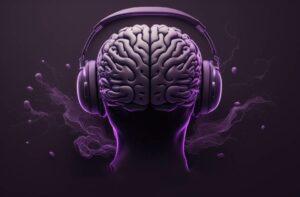Neuroscience is a multidisciplinary field of study that explores the structure and function of the nervous system. It draws on principles from biology, psychology, physics, and computer science to understand how the brain and nervous system work.
The nervous system is incredibly complex, and neuroscience research encompasses a wide range of topics, from basic research on the function of individual neurons to clinical research on the treatment of neurological disorders. Some of the key areas of research in neuroscience include neuroanatomy, neurophysiology, cognitive neuroscience, and computational neuroscience.
Advances in neuroscience research have led to many new discoveries about the nervous system, including the discovery of neurotransmitters and the role of neuroplasticity in learning and memory. Neuroscience research has also led to new treatments for neurological disorders, including medications, surgical techniques, and neuromodulation therapies.
One of the challenges of neuroscience research is the sheer complexity of the nervous system. The brain and nervous system are composed of billions of neurons and other cells, and understanding how they interact and function is a daunting task. However, advances in technology, such as brain imaging techniques and computational modelling, have greatly improved our ability to study the nervous system and make new discoveries.
Neuroscience research has important implications for a wide range of fields, including medicine, psychology, and artificial intelligence. For example, a better understanding of the brain's neural networks could lead to the development of more effective treatments for neurological disorders or the creation of more sophisticated artificial intelligence systems.
Neuroscience
Insights from neuroscience can inform mental health and well-being by elucidating the neural mechanisms underlying various cognitive processes, emotions, and behaviours, as well as the factors that contribute to the development and maintenance of mental health disorders. This knowledge can help individuals and healthcare professionals identify strategies for promoting brain health, such as adopting a healthy lifestyle, engaging in cognitive stimulation, and developing effective stress management techniques. Additionally, neuroscience research can contribute to the development of novel treatments and interventions for mental health disorders, such as pharmacological therapies, neuromodulation techniques, or cognitive-behavioural interventions.
Neuroscience and psychology are closely related fields that both focus on the study of the mind and behaviour. However, there are some key differences between the two disciplines. Neuroscience primarily investigates the biological basis of mental processes, emotions, and behaviours, with a focus on the nervous system and its components, such as neurons, synapses, and neurotransmitters. Psychology, on the other hand, encompasses a broader range of approaches to understanding the mind and behaviour, including cognitive, social, developmental, and clinical perspectives. While neuroscience often employs experimental methods and technologies to investigate neural structure and function, psychology may utilise behavioural observations, self-report measures, and experimental manipulations to explore various aspects of human experience and behaviour.
Neuroscience research can contribute to the development of strategies and interventions for improving memory, learning, and cognitive performance by elucidating the neural mechanisms underlying these processes, as well as the factors that influence their efficiency and resilience. For example, research on neuroplasticity has demonstrated the importance of cognitive stimulation, physical exercise, and adequate sleep for promoting optimal brain function and cognitive performance. Additionally, insights from neuroscience can inform the development of targeted cognitive training programs, pharmacological interventions, or neuromodulation techniques to enhance specific aspects of cognitive functioning or ameliorate cognitive deficits associated with neurological or psychiatric disorders.
Related Semantic Entities for Neuroscience

